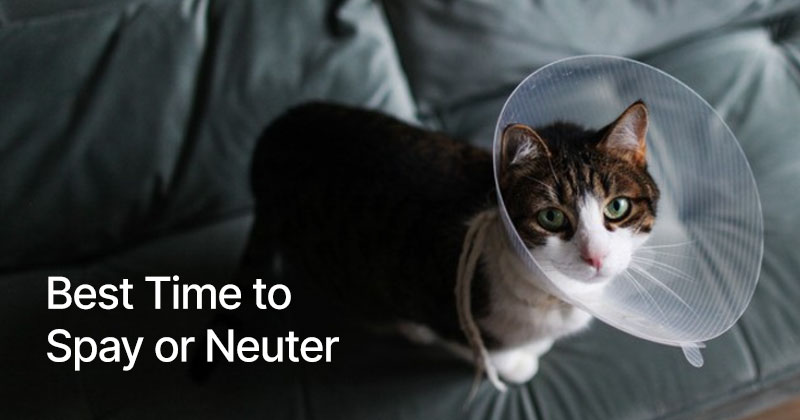
Spaying or neutering a cat benefits not only your pet’s health but also the community by controlling the cat population. But when is the best time to spay or neuter a cat? The timing of this procedure depends on several factors, including your cat’s age, breed, and overall health. Let’s dive into when you should consider scheduling this procedure and why it’s such an important step for your feline friend.
The timing of spaying or neutering a cat can significantly impact their health. Surgery affects growth, hormones, and helps prevent health issues. Most vets recommend spaying or neutering before sexual maturity, which typically occurs around five to six months. Early spaying or neutering can prevent unwanted behaviors like spraying and reduce the risk of health problems such as uterine infections in females and prostate issues in males. The Ridge Veterinary Clinic in Omaha, NE, can help you determine the best time for your cat's procedure.
Many veterinarians recommend spaying or neutering cats before five months, as it's safer and kittens recover faster. Early spaying or neutering reduces cancer risk, prevents accidental litters, and curbs behaviors like marking or roaming. It also stops heat cycles in females, reducing stress. Consult The Ridge Veterinary Clinic to assess your cat's readiness and find the best time for surgery.
Adult cats can also benefit from spaying or neutering, even if they've already reached maturity. The procedure reduces disease risks and curbs behaviors like spraying or fighting. Neutering males can calm them, and spaying females helps prevent uterine infections and breast tumors. The Ridge Veterinary Clinic offers thorough exams to ensure older cats are ready for surgery and provides guidance on recovery.
If you’ve decided that now is the right time to spay or neuter your cat, proper preparation is key to ensuring the surgery goes smoothly. Here are a few steps to consider:
After your cat has been spayed or neutered, recovery is relatively quick, but there are a few things to watch for. In most cases, cats are back to their usual selves within a week, but it’s important to provide a calm environment during their recovery. Here’s what to expect after your cat’s spay or neuter procedure:
At The Ridge Veterinary Clinic, we provide clear after-care instructions and are available for any questions during your cat’s recovery period. Our team is committed to making sure your cat heals quickly and comfortably.
Spaying or neutering a cat has benefits beyond your individual pet. It helps control the overall cat population, reducing the number of homeless cats in shelters and on the streets. Uncontrolled cat populations can lead to a range of issues, including increased spread of diseases and more animals needing care in shelters. By spaying or neutering your cat, you’re contributing to the health and well-being of the community. You’re also reducing the likelihood of behavioral problems, which can make pet ownership more manageable and enjoyable.
Whether you have a young kitten or an older cat, spaying or neutering is a responsible choice that benefits both your pet and the community. The Ridge Veterinary Clinic in Omaha, NE, is here to provide expert guidance on when and how to spay or neuter a cat. Our experienced team can help you determine the best time for your cat’s procedure, ensuring a safe and comfortable experience. Call us today at (402) 334-1580 or request an appointment to discuss your cat’s spaying or neutering needs. We’re here to answer any questions you may have and support you in making the best decision for your pet’s health and happiness.
Closed daily from 12:30-1:30pm;
Thursdays Closed 12:30-2:00pm


